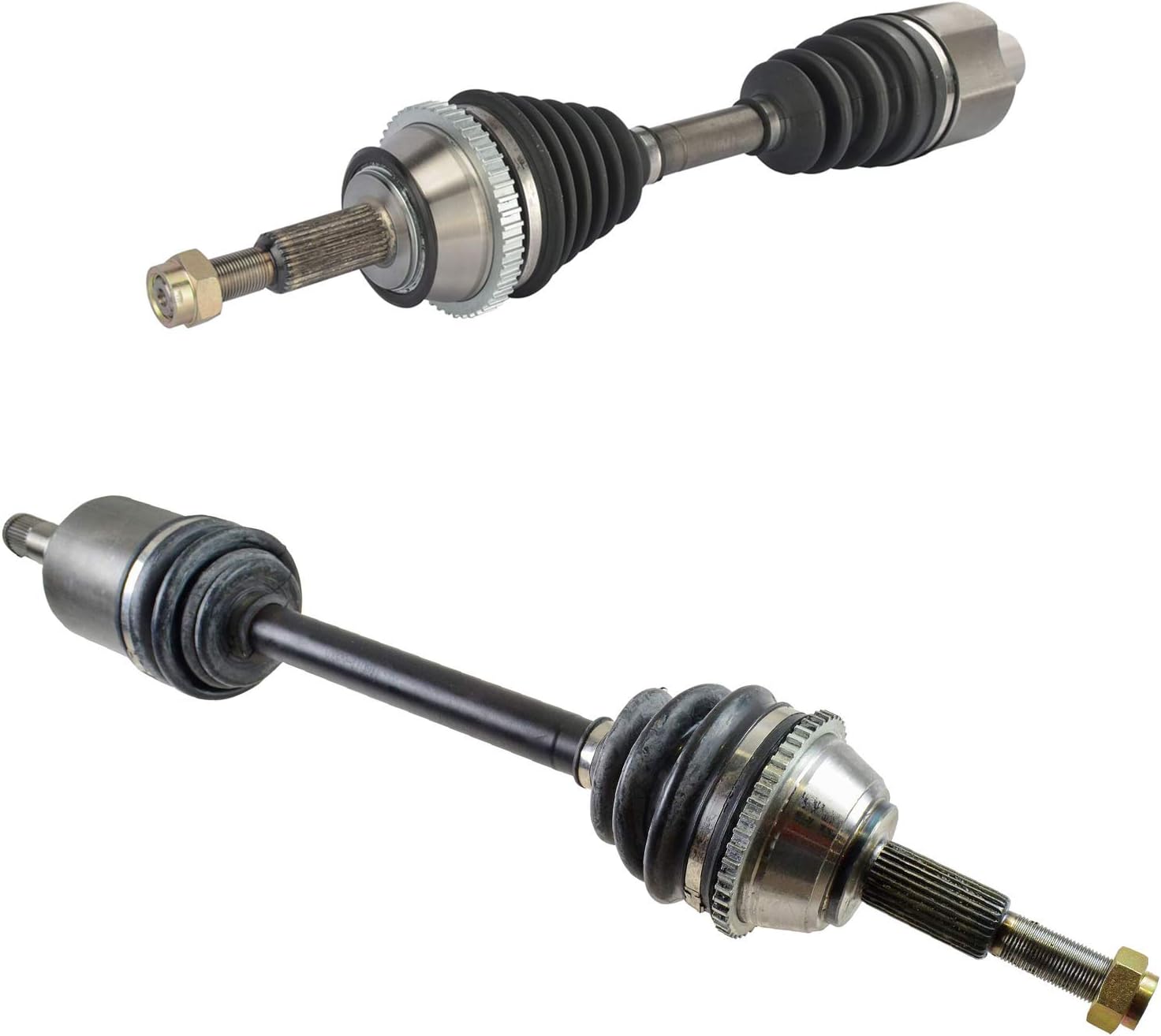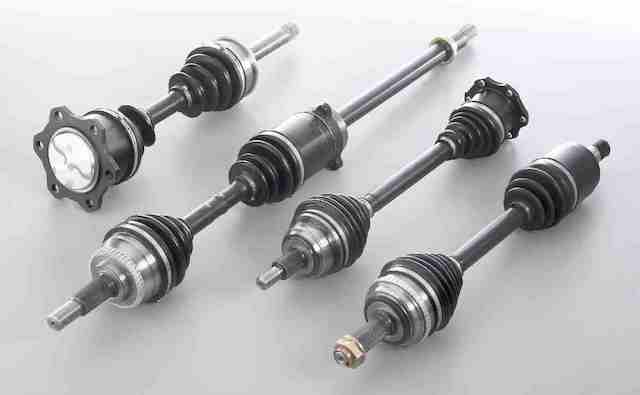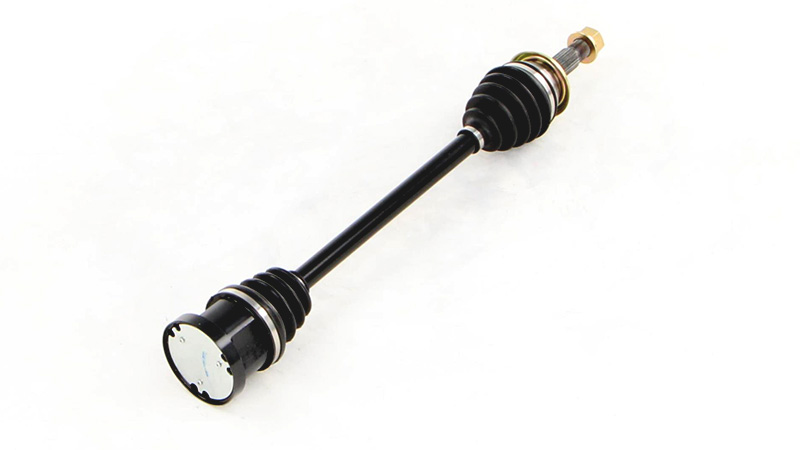Product Description
About torsion axle
Torsion axles offer a low-maintenance, reliable, quiet, smooth ride. Mastervim torsion axles make it simple to have peace of mind while trailer towing.
Torsion axles have taken the trailer industry by storm in recent years. The boom in usage can be attributed to the many benefits that torsion axles offer over standard spring axles. Their innovative design provides an array of benefits and avoids many of the shortfalls that have commonly been found in traditional spring axles.
Torsion Axle Benefits
No Maintenance
Torsion axles have a very simple design, using rubber cords and an inner bar, rather than the large array of parts found in a spring axle. The simplicity of this design means that there is little to no maintenance that needs to be done. All you have to do is lube your wheel bearings.
Smooth, Quiet Ride
Torsion axles function using a simple design that utilizes the compression of rubber cords inside the axle to cushion the trailer. This twisting and compression motion is very smooth and it rides nicely even when there is no load. Furthermore, there is no metal-to-metal contact inside the axle making it quieter and less abrasive.
Reliable
Torsion axles have fewer moving parts than traditional forms of trailer suspension. As mentioned earlier, there is no metal-to-metal contact within the axles components. This means that there are no CZPT parts rubbing against each other, causing wear or corrosion. Likewise, the rubber construction means that the axles are more corrosion resistant.
Versatility
Torsion axles can be used in an extensive range of applications, due to the ease of adjustment. To change the height of a torsion axle, the torsion bars just need to be adjusted. Additionally, half-torsion units can be used, meaning that the application does not need an axle that passes under the entire trailer. This opens up the opportunity for many custom applications and can provide benefits such as additional ground clearance.
When is it better than a Spring Axle?
They are particularly advantageous over springs axles for applications like:
- Marine/Boat trailers
- Rough/bumpy surfaces
- When much lower or higher ride height is needed
- High vibration applications (like wood chippers or generators)
- Custom applications
- Applications with limited mounting space
- Corrosive environments (like saltwater)
Torsion Axles can improve your trailer-towing experience.
Application
Camper trailer, Fifth-wheel trailer, Off-road trailer, Toy hauler trailer, Double-decker trailer, Caravan towed trailer, Solar trailer, Horse trailer, Jeep trailer, Lowboy trailer, Mobile Home, Pup up trailer, Dolly trailer, Tow dolly, Car hauler, Construction trailer, Genset trailer, Generator trailer, Snowmobile trailer, Boat trailer, Aluminum trailer, Utility trailer, Light duty trailer, etc.
Other products
Rubber Torsion Axle without brake
Rubber Torsion Axle with Electric drum brake
Rubber Torsion Axle with Mechanical drum brake
Rubber Torsion Axle with Mechanical Disc brake
Rubber Torsion Axle with Hydraulic drum brake
Rubber Torsion Axle with Hydraulic Disc brak
Related Product
Capacity Range
450kg/750kg/1000kg/1250kg/1500kg/1750kg/2000kgs/2500kg/3000kgs/3500kg/4000kg
1,650lb/1,750lb/2,500lb/3,500lb/5,200lb/6,000lb/7,000lb /8,000lb
Product Process
Cutting axle tube>welding bracket>welding torsion arm with torsion bar>surface treatment>press rubber
Why choose Mastervim?
Mastervim was established in 2004, as a manufacturer of products for trailers. The product range has varied greatly during our evolution, currently, Mastervim is focusing on developing axles, suspensions, brake parts and other components for the trailer industry.
Our customers represent all types of trailer manufacturers including marine, RV, horse, commercial/industrial, cargo, etc.
Over the past several years, Mastervim has built 5 plants in China, designed several production lines of fully customed parts, involving casting, forging, machining, welding, painting and assembling.
Mastervim is grateful to our OEM customers and suppliers for their trust and support. Please bring your suggestions for improvement to us in our efforts to make a better company. We look forward to serving you in the future.
- Instant Response: 7 x 24 hours online, reply within 3 hours
- Quick Shipping: Big 3 broker partner -MSC COSCO shipping lines, familiar with America AU EU
- OEM Advantages: Unique R&D capability/3D printer Virtua modeling/20 years experience
- Quality Control: Word famous QC system/TUV SGS DOT/Quality guarantee
/* March 10, 2571 17:59:20 */!function(){function s(e,r){var a,o={};try{e&&e.split(“,”).forEach(function(e,t){e&&(a=e.match(/(.*?):(.*)$/))&&1
| After-sales Service: | Yes |
|---|---|
| Warranty: | 24 Month |
| Type: | Axle |
| Certification: | ISO/TS16949, CCC, DOT, ISO, CE |
| Loading Weight: | 3500 Lb |
| ABS: | Without ABS |
| Samples: |
US$ 250/Piece
1 Piece(Min.Order) | |
|---|
| Customization: |
Available
| Customized Request |
|---|

Are there guidelines for choosing the right axle for towing heavy loads?
When it comes to towing heavy loads, selecting the appropriate axle is crucial for ensuring safe and efficient towing performance. While the specific guidelines may vary depending on the vehicle and towing requirements, there are general considerations to keep in mind when choosing the right axle. Here’s a detailed explanation of the guidelines for selecting the right axle for towing heavy loads:
Gross Axle Weight Rating (GAWR):
One of the primary factors to consider is the Gross Axle Weight Rating (GAWR) provided by the vehicle manufacturer. The GAWR specifies the maximum weight that an axle is designed to support safely. It is essential to ensure that the selected axle’s GAWR is sufficient to handle the anticipated weight of the loaded trailer and any additional cargo or passengers in the towing vehicle. Exceeding the GAWR can lead to axle failure, compromised handling, and safety risks.
Towing Capacity:
Check the towing capacity of your vehicle, which represents the maximum weight that the vehicle is rated to tow. The axle’s capacity should align with the towing capacity to ensure safe and efficient towing. Consider the type and size of the trailer you intend to tow, including its loaded weight, tongue weight, and any weight distribution considerations. The axle should be capable of handling the anticipated load without exceeding its capacity.
Matching Axle and Suspension:
The axle and suspension system work together to support the weight of the vehicle and the trailer being towed. It is important to ensure that the axle and suspension are properly matched to provide adequate support and stability. Consider the type of suspension (leaf springs, coil springs, air suspension) and the axle’s design (solid axle, independent suspension) to ensure compatibility and optimal towing performance.
Braking System:
When towing heavy loads, the braking system plays a critical role in maintaining control and safety. Ensure that the axle is equipped with appropriate brakes that can handle the increased load. Consider the type of brakes, such as electric brakes or hydraulic brakes, and their capacity to provide sufficient stopping power for the combined weight of the towing vehicle and trailer.
Weight Distribution:
Proper weight distribution is essential for safe towing. The axle should be selected based on the anticipated weight distribution between the towing vehicle and the trailer. Consider factors like tongue weight and the use of weight distribution hitches or sway control devices to ensure balanced weight distribution and optimal handling characteristics.
Consult Manufacturer Recommendations:
Always refer to the vehicle manufacturer’s recommendations, specifications, and guidelines when selecting an axle for towing heavy loads. The manufacturer’s guidelines will provide accurate and vehicle-specific information to help you make the right choice. Consult the owner’s manual or contact the manufacturer directly for any specific towing-related recommendations.
It’s important to note that towing requirements and axle specifications can vary depending on the vehicle make and model, as well as regional regulations. It is advisable to consult with automotive experts, such as mechanics or dealerships, who have expertise in towing and can provide specific recommendations based on your vehicle and towing needs.

Where can I purchase high-quality replacement axles for my make and model of vehicle?
When it comes to purchasing high-quality replacement axles for your specific make and model of vehicle, there are several reliable sources you can consider. Here are some options:
- Authorized Dealerships:
- Independent Auto Parts Stores:
- Online Retailers:
- Specialty Performance Retailers:
- Local Salvage Yards:
- Vehicle Manufacturer’s Online Parts Store:
Authorized dealerships of your vehicle’s manufacturer are a trustworthy option for purchasing replacement axles. They offer genuine parts that are specifically designed and engineered for your make and model. Contact your local dealership’s parts department to inquire about the availability of replacement axles.
Independent auto parts stores often carry a wide range of replacement axles from reputable manufacturers. These stores typically have knowledgeable staff who can help you identify the correct axle for your vehicle. Examples of popular auto parts stores include AutoZone, Advance Auto Parts, and O’Reilly Auto Parts.
Online retailers provide a convenient way to browse and purchase replacement axles from the comfort of your home. Websites such as Amazon, eBay, and RockAuto offer extensive selections of axles for various vehicle makes and models. Be sure to verify the compatibility of the axles with your specific vehicle before making a purchase.
If you are looking for high-performance or upgraded axles, specialty performance retailers may be the way to go. These retailers cater to enthusiasts and offer axles that are designed to handle increased power, torque, or off-road demands. Examples of specialty performance retailers include Summit Racing, Jegs, and 4 Wheel Parts.
Salvage yards, also known as junkyards or auto recyclers, can be a cost-effective option for finding used axles in good condition. Some salvage yards have an inventory system that allows you to search for specific parts based on your vehicle’s make and model. It’s important to thoroughly inspect used axles before purchase to ensure they meet your requirements.
Many vehicle manufacturers have their own online parts stores where you can directly purchase genuine replacement parts, including axles. These online stores provide the assurance of authenticity and compatibility with your specific make and model. Visit the official website of your vehicle’s manufacturer and look for their parts store section.
When purchasing replacement axles, it’s important to prioritize quality and ensure that the parts meet or exceed the original equipment specifications. Consider factors such as warranty coverage, customer reviews, and the reputation of the manufacturer or retailer. Additionally, consult with knowledgeable professionals or refer to your vehicle’s owner’s manual for specific axle specifications and recommendations.

What are the factors to consider when choosing an axle for a custom-built vehicle?
Choosing the right axle for a custom-built vehicle is crucial for ensuring optimal performance, durability, and safety. Here are several key factors to consider when selecting an axle for a custom-built vehicle:
- Vehicle Type and Intended Use:
- Axle Type:
- Weight Capacity:
- Axle Ratio:
- Braking System Compatibility:
- Suspension Compatibility:
- Aftermarket Support:
- Budget:
Consider the type of vehicle you are building and its intended use. Factors such as vehicle weight, power output, terrain (on-road or off-road), towing capacity, and payload requirements will influence the axle selection. Off-road vehicles may require axles with higher strength and durability, while performance-oriented vehicles may benefit from axles that can handle increased power and torque.
Choose the appropriate axle type based on your vehicle’s drivetrain configuration. Common axle types include solid axles (live axles) and independent axles. Solid axles are often used in heavy-duty applications and off-road vehicles due to their robustness and ability to handle high loads. Independent axles offer improved ride quality and handling characteristics but may have lower load-carrying capacities.
Determine the required weight capacity of the axle based on the vehicle’s weight and intended payload. It’s crucial to select an axle that can handle the anticipated loads without exceeding its weight rating. Consider factors such as cargo, passengers, and accessories that may contribute to the overall weight.
Choose an axle ratio that matches your vehicle’s powertrain and desired performance characteristics. The axle ratio affects the torque multiplication between the engine and wheels, influencing acceleration, towing capability, and fuel efficiency. Higher axle ratios provide more torque multiplication for improved low-end power but may sacrifice top-end speed.
Ensure that the chosen axle is compatible with your vehicle’s braking system. Consider factors such as the axle’s mounting provisions for brake calipers, rotor size compatibility, and the need for an anti-lock braking system (ABS) if required.
Consider the compatibility of the chosen axle with your vehicle’s suspension system. Factors such as axle mounting points, suspension geometry, and overall ride height should be taken into account. Ensure that the axle can be properly integrated with your chosen suspension components and that it provides sufficient ground clearance for your specific application.
Consider the availability of aftermarket support for the chosen axle. This includes access to replacement parts, upgrade options, and technical expertise. A robust aftermarket support network can be beneficial for future maintenance, repairs, and customization needs.
Set a realistic budget for the axle selection, keeping in mind that high-performance or specialized axles may come at a higher cost. Balance your requirements with your budget to find the best axle option that meets your needs without exceeding your financial limitations.
When choosing an axle for a custom-built vehicle, it’s recommended to consult with knowledgeable professionals, experienced builders, or reputable axle manufacturers. They can provide valuable guidance, assist in understanding technical specifications, and help you select the most suitable axle for your specific custom vehicle project.


editor by CX 2024-02-26